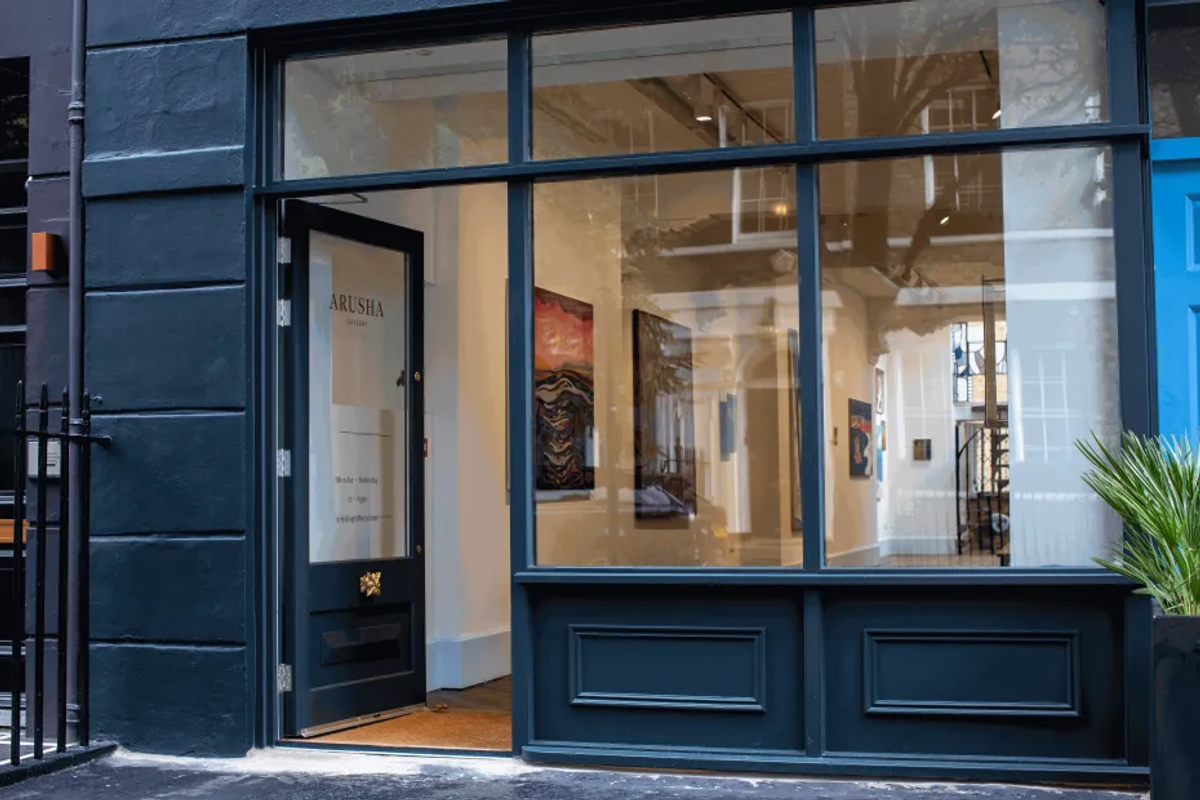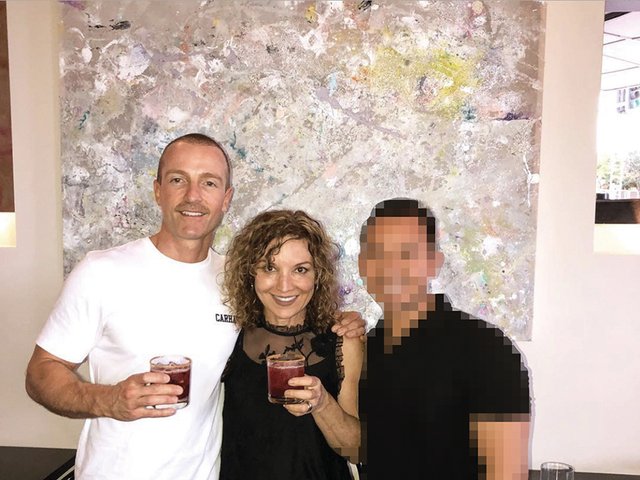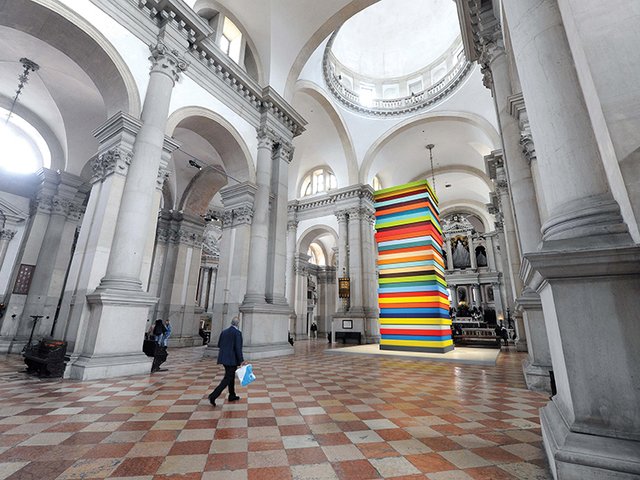The future of Arusha Gallery, which opened in Edinburgh in 2013 and in London in 2023, hangs in the balance as ten artists speak out over missing or delayed payments amounting to nearly half a million pounds. At least one exhibition due to be held at the gallery this summer has been cancelled.
In a joint statement sent to The Art Newspaper the artists said they have faced “extreme difficulty obtaining payment for sold work—often waiting months or even years to receive funds owed”. They added: “The ongoing uncertainty—over whether work has sold, whether payment will ever be made, or whether pieces have been lost or damaged—has caused emotional, mental, and financial harm. It continues to have a profound impact on our lives and livelihoods.”
Charlotte Keates, who has been represented by Arusha Gallery for around ten years, says she is owed nearly £430,000 from the sales of paintings worth around £1m dating back to 2023. The gallery’s owner, Bella Arusha Collins King, disputes in legal letters that Keates is owed this amount.
In letters sent between the two parties, and seen by The Art Newspaper, Collins King's lawyer Neville Takiar states that Arusha Gallery is entitled to a 50% cut on proceeds from a collaboration Keates recently entered into with the luxury fashion brand Hermès, saying the gallery helped initiate contact with the company, facilitated a trip to Paris and invited Hermès representatives to VIP events. Keates refutes the level of involvement of the gallery; her lawyer Jon Sharples tells The Art Newspaper the claims over the Hermès collaboration are “totally without merit and are an unhelpful distraction from the straightforward reality which is that Arusha Gallery has encountered trading difficulties and has withheld Charlotte’s funds to plug shortfalls elsewhere in the business”.
In a statement to The Art Newspaper, the gallery does, however, acknowledge there are missing payments relating to the sales of works. “We are desperately sorry that some artists have still not been paid what they are owed and that some customers are without works for which they have paid; we understand how serious that is,” the statement says.
Arusha Gallery's statement points to the downturn in the art market, which saw “performance drop off sharply and unexpectedly in 2024 and into 2025”, as well as the unexpected death in January of Collins King's partner and gallery co-owner, Guy Rowland Maxwell Bargery. "[The gallery has been] working exceptionally hard through a crisis to turn things around over recent months,” the statement adds. This has included “scaling back operations, seeking time to pay arrangements with creditors and, in good faith, striving to trade out of these difficulties”.
Despite these difficulties, there are still plans for Arusha Gallery to press ahead with plans to launch a wellness and exhibition centre in King Charles’s former Welsh holiday home, an historic cottage called Llwynywermod on the outskirts of the Brecon Beacons National Park, now owned by the Duchy of Cornwall.
According to posts on Arusha Gallery’s Facebook and Instagram accounts dated 8 January, which have since been deleted, the new space is described as a “dynamic new flagship venue”, which will host exhibitions as well as plant healing workshops and retreats. The social media posts stated that the cottage is “envisioned as a gallery with additional expansive spaces for performances, retreats and workshops” and is due to be an “exceptional destination for contemporary art, art education and culture”.
In its statement, Arusha Gallery says it is “grateful for the understanding and support shown by the landlord there”, adding: “This is an entirely separate enterprise, and its primary focus is not and was never art. The primary focus of Wales is well-being.”
At the time of writing, Collins King could not confirm whether plans to call the new centre Arusha at Llwynwermod would go ahead and whether the existing gallery business would be wound down. The gallery's statement says its “future will be decided in the coming days”. It adds: “The original idea was for the [Wales] project to carry the Arusha moniker but following Guy’s passing we’re really not sure about that anymore. His passing left the gallery somewhat paralysed and directionless.”
In their statement, the artists describe Bargery’s death as “deeply tragic”. However, they say their problems in dealings with the gallery “long predate this sad event and have continued to worsen”.
Keates says issues over non-payment arose after a show she did with the gallery in New York in May 2023, the same month she gave birth to her first child. “I was at a vulnerable point, it was the worst possible timing for all this, I completely trusted the gallery,” the artist says.
In the ensuing months, Keates says Collins King would stall her in phone calls and in-person meetings “where Bella would talk about how the market was in a dreadful place”. In January 2024, Keates says Collins King offered her a payment plan, but “it never materialised”.
Despite the outstanding debt, Keates pressed ahead with plans for a show at Arusha Gallery in London in December 2024. “The exhibition had already been marketed and Hermès wanted to come and see it,” Keates says. The artist unveiled her window designs for the luxury fashion house in stores in London and Dublin in early May. “I knew collectors who had already pre-bought some of the works [from the show], and they’d messaged me saying how excited they were to have them, so I didn't want to pull out.” Arusha Gallery had also begun paying “small amounts” in the run up to the exhibition.
Keates says she continued with the show on the proviso that the gallery would agree “a more suitable split” on sales that allowed some of the debt to be paid off. The artist says she has not been paid since the exhibition and that she believes three of her works are still being held by a storage company at Heathrow airport.
Arusha Gallery says in its statement that Keates “was paid regularly” up to early January 2025, but maintains “there are a number of queries over her perceived entitlement”. The statement adds: “That said, we felt we were making steady progress with her towards a resolution.”
As for the timings of payments, in legal correspondence, Collins King’s lawyer, Neville Takiar, says there was no specific agreement in place. Keates says she regrets the “informal nature” of her relationship with the gallery; her lawyer Jon Sharples says that, in the absence of any agreement about the frequency of remuneration, payment should have been made “within a reasonable time”.
Other artists say they are owed sums ranging from a few thousand to tens of thousands of pounds. Helen Flockhart, who joined Arusha Gallery in 2016, says the “first sign of difficulties came in around autumn 2023”. Flockhart says she is still owed more than £28,000, “which is a whole year’s income”. She adds: “I’m supposed to just write it off. I can’t think of any other profession where an employer would get away with not paying you for a year, and you’re basically still expected to turn up for work. It has left me in a really difficult position. I don’t know if I’ll be able to continue living in my home, I have studio rent to pay, a family to support, and the rest.”
Another artist, Pippa Young, says she had to repeatedly chase Collins King for payment of around £33,000, which took several months but was eventually settled last autumn. One work is still missing.
“The issue now is that I am having to deal with clients that Bella promised works to and who have paid in full without my knowledge. Understandably the clients are not at all happy and the stress and time it has taken to try and resolve this has eaten so much into my studio time that I’ve hardly been able to paint,” Young says.
The other signatories of the joint statement—Anna Rocke, Plum Cloutman, Megan Rea, Kate Walters, Gail Harvey, Morwenna Morrison and Ilona Szalay—also note that “collectors have been affected”. Some have “paid in full for artworks they never received”, in other cases, “works have been pre-sold without the artist’s knowledge and before completion”. The artists say in the statement that “the art world still relies heavily on trust”, but “that trust has been severely breached in our dealings with Arusha Gallery—not only for artists, but for collectors and suppliers as well”.
The artists also say that, in some instances, artworks have been returned “damaged or poorly packed”. In its statement, the gallery says it is “not aware of any works having been poorly packed or damaged”. Some signatories of the artist statement say they are now “unable to retrieve their work from storage or shipping companies because Arusha has failed to pay those service providers”.
Communication, meanwhile, has ranged from “inconsistent to entirely absent”, the artists say in their statement—and “promised deadlines for payments have repeatedly come and gone without explanation or apology”. More recently, all attempts to communicate with the gallery “have simply been ignored”. Arusha Gallery denies that communication has been lacking and says it has been “open, honest and transparent about our situation”. In its statement, the gallery also says the criticism of its communications also fails to take “due account of the tragic circumstances”.
The gallery statement adds: “A successful outcome was more than achievable, and indeed likely; however, those efforts seem to have been thwarted by a small number of artists who harmed our business by unsettling customers and persuading other artists to withdraw support. We understand their anger, but we believe this was excessive and unnecessary.”




